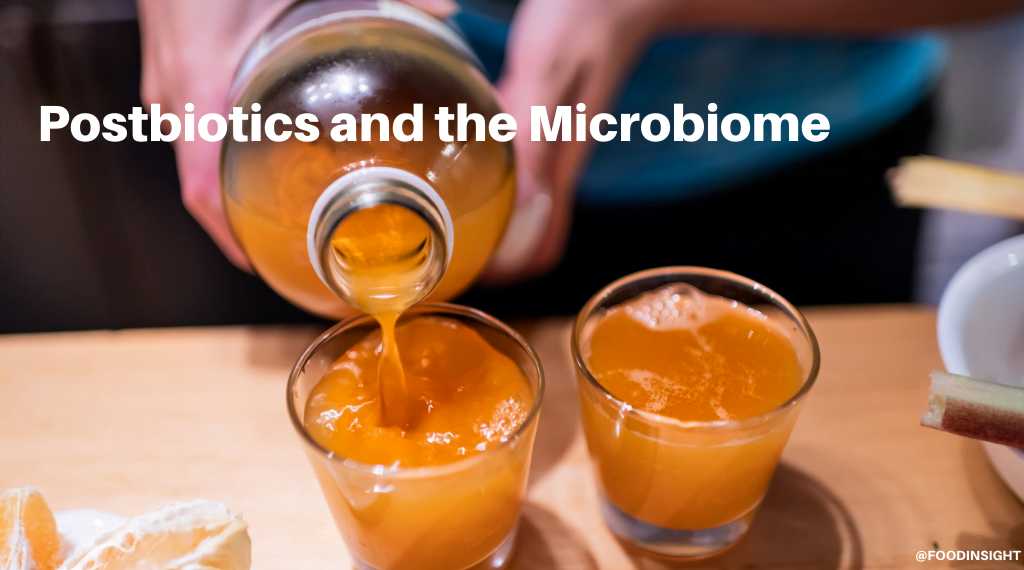Over the past few years, there’s been a wave of research and news surrounding the impact of what we eat on our gut microbiome and digestive health. From Greek yogurt to probiotic-boosted chocolate to dietary supplements aimed at supporting digestive health, the options for nurturing the bacteria living in our gastrointestinal tract are seemingly endless. And more recently, there’s been a new addition to the conversation around gut health: Postbiotics. This article explains what postbiotics are, how they’re used, and what we know about their potential health benefits.
What are postbiotics?
To better understand postbiotics, let’s recall what we know about other gut-health-related terms. Prebiotics are substances in foods that humans can’t digest—mainly dietary fiber—that become food for the millions of bacteria living in our stomach and intestines. Also known as probiotic microorganisms, these gastrointestinal bacteria ferment prebiotics. The end products of the fermentation process are postbiotics. Postbiotics are not useless waste products—instead, they are bioactive, meaning they can have beneficial effects on our bodies and our health.
Spurred on by growing awareness and the increasing use of the term “postbiotics” in research and in commercial products, in 2021 the International Scientific Association of Probiotics and Prebiotics (ISAPP) formally defined a postbiotic as a “preparation of inanimate microorganisms and/or their components that confers a health benefit on the host”.
What are some examples of postbiotics?
There are many different types of postbiotics, ranging from familiar nutrients like vitamin B12, vitamin K, folate and some amino acids—yes, these nutrients can be made by our gut bacteria!—to less-familiar varieties like short-chain fatty acids, enzymes, lipopolysaccharides, fragments of bacterial cell walls, bacterial lysates, and cell-free supernatants.
What are the health effects of postbiotics?
The health effects of postbiotics have been studied both for prevention and treatment of certain health conditions. In humans, evidence from randomized controlled trials is extremely limited, and research attempting to understand the connections that tie our dietary choices to postbiotic generation within our gut microbiome and any resulting health effects is even harder to come by. Most of the research done on the health impact of postbiotics involves administering them as supplements, limiting the applicability of the results to postbiotics that are generated after the consumption of pre- and probiotic foods.
All this is to say that there isn’t enough information available to fully understand the complex effects of postbiotics on human health. Even so, there are a few areas of our health for which postbiotics might hold particular promise:
- Immune function: A few studies have demonstrated that postbiotic supplementation may reduce development of the common cold and recurrent respiratory tract infections.
- Gastrointestinal conditions: Postbiotic supplementation has alleviated symptoms of irritable bowel syndrome and inflammatory bowel disease in a few randomized controlled trials.
Some postbiotics are better studied than others. For example, short-chain fatty acids are thought to have a number of beneficial health effects, including treating gastrointestinal conditions, reducing risk for certain types of cancer, enhancing calcium absorption, improving bowel function, and providing fuel for the cells that line our lower gastrointestinal tract, which maintains a healthy gut barrier against harmful bacteria and other substances that may cause illness.
Are postbiotics safe?
Postbiotics are considered safe when produced by bacteria in our bodies. Postbiotics are also available in various forms as dietary supplements, which are not approved by the U.S. Food and Drug Administration and thus do not need to demonstrate safety before going on the market. The FDA does monitor the marketplace for unsafe products and those that make misleading claims.
For people with compromised immune systems, postbiotics could be an alternative to probiotic supplementation, as exposure to live microorganisms can lead to adverse effects in this population. Effectively, consuming postbiotics would provide the same health effects, without probiotics needing to act as the “middle man.”
What can I do to get more postbiotics?
There are a few ways to bump up the amount of postbiotics in your body. One approach is to consume more sources of prebiotics and probiotics, which might ultimately result in more postbiotics being generated by your gut bacteria. Probiotics can be found in fermented dairy products like yogurt and kefir, and they can also be added to other non-traditional foods like chocolate, juices, spreads and nutrition bars. Fruits, vegetables, cereals and other edible plants all have the potential to provide prebiotics, and food ingredients like lactulose and inulin are also classified as prebiotics.
Consuming fermented foods—which aren’t necessarily probiotic —may also boost postbiotics in the body. Non-probiotic bacteria involved in fermentation can produce many of the same postbiotics that probiotic bacteria can, although more research is needed to determine whether or not the effects of postbiotics from different sources are similar. Examples of fermented foods include sauerkraut, kimchi, miso, tempeh, and kombucha.
In dietary supplement form, postbiotics are often marketed under more specific names like “sodium butyrate” or “fermentate”. Frequently, they’re combined with pre- or probiotics into a single supplement. In all cases, it’s important to talk to your health care provider before starting any dietary supplement.
As with many aspects of our gut microbiome, we still have so much to learn about postbiotics and their impact on human health. While this topic can seem confusing, one thing is certain: prebiotic- and probiotic-containing foods are often rich in many other nutrients that our bodies need for optimal health, including dietary fiber, protein, calcium, and other vitamins, nutrients, and minerals. Focusing on mastering the basics of healthful eating can boost our overall health as we continue to learn more about the impact of postbiotics.
